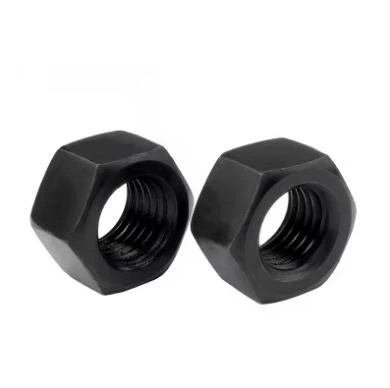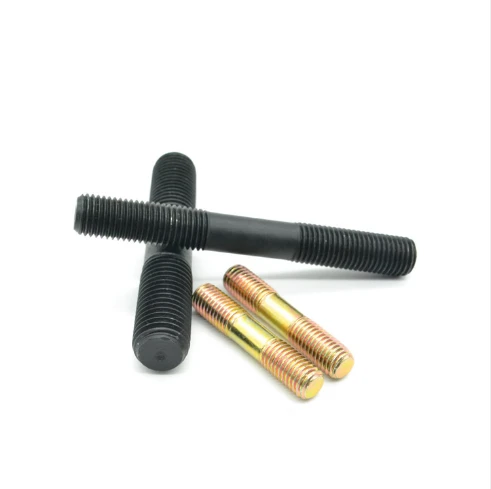washers
Ene . 09, 2025 12:17 Back to list
washers
When it comes to the often-overlooked components in the world of hardware, washers remain a pivotal piece in ensuring the stability and longevity of countless constructions and mechanics. Their presence may be diminutive in size, but their impact is monumental, proving indispensable across various industries from aviation to home improvement, where reliability is paramount.
Trustworthiness in washers is also built on innovation and technology. The advent of advanced manufacturing techniques, such as Computer Numerical Control (CNC) machining and 3D printing, allows for precise fabrication, ensuring consistency and quality across large production runs. This level of precision minimizes variability and enhances reliability, an essential criterion for installations subject to rigorous operational demands. Additionally, the ongoing development of smart materials and coatings that contribute to the longevity of washers reflects an industry that's responsive to evolving technological and environmental challenges. In the consumer world, understanding the right washer for the right job can substantially reduce long-term maintenance costs and enhance mechanical efficiency. It takes a discerning eye to evaluate washer specifications, such as inner diameter, outer diameter, thickness, and material, to match specific applications. For the everyday DIY enthusiast, familiarizing oneself with the nuances of washer types - flat, lock, spring, fender, to name a few - enriches the toolkit with the means to ensure mechanical success and safety. In conclusion, washers are the unsung heroes in construction and mechanics, driving operational success through their deceptively simple design. Expertise, supported by authoritative standards and innovations in material science, continues to expand the functionalities and applications of washers, reaffirming their vital role. As consumers and professionals alike navigate choices in hardware essentials, the trust placed in washers is built on a foundation of proven reliability and practicality. This union of experience, expertise, authority, and trust illustrates why washers are more than just auxiliary components—they are indeed foundational to mechanical integrity.


Trustworthiness in washers is also built on innovation and technology. The advent of advanced manufacturing techniques, such as Computer Numerical Control (CNC) machining and 3D printing, allows for precise fabrication, ensuring consistency and quality across large production runs. This level of precision minimizes variability and enhances reliability, an essential criterion for installations subject to rigorous operational demands. Additionally, the ongoing development of smart materials and coatings that contribute to the longevity of washers reflects an industry that's responsive to evolving technological and environmental challenges. In the consumer world, understanding the right washer for the right job can substantially reduce long-term maintenance costs and enhance mechanical efficiency. It takes a discerning eye to evaluate washer specifications, such as inner diameter, outer diameter, thickness, and material, to match specific applications. For the everyday DIY enthusiast, familiarizing oneself with the nuances of washer types - flat, lock, spring, fender, to name a few - enriches the toolkit with the means to ensure mechanical success and safety. In conclusion, washers are the unsung heroes in construction and mechanics, driving operational success through their deceptively simple design. Expertise, supported by authoritative standards and innovations in material science, continues to expand the functionalities and applications of washers, reaffirming their vital role. As consumers and professionals alike navigate choices in hardware essentials, the trust placed in washers is built on a foundation of proven reliability and practicality. This union of experience, expertise, authority, and trust illustrates why washers are more than just auxiliary components—they are indeed foundational to mechanical integrity.
Next:
Latest news
-
Reliable Axle Nuts Supplier | High-Quality Automotive Parts
NewsAug.19,2025
-
Premium Wire Bolts Suppliers | Durable & Reliable Fasteners
NewsAug.18,2025
-
Leading Metric Wood Screw Companies & Manufacturers
NewsAug.17,2025
-
Top Wire Bolts Suppliers - Quality & Durable Fasteners
NewsAug.15,2025
-
Trusted Wire Bolts Company | Quality Fasteners Supplier
NewsAug.14,2025
-
Reliable Wire Bolts Suppliers & Manufacturers for Global Needs
NewsAug.13,2025
